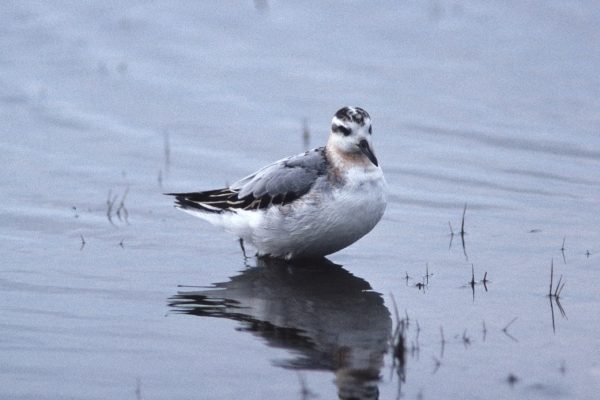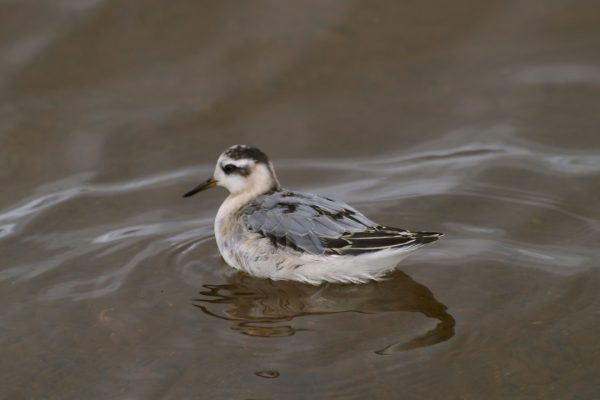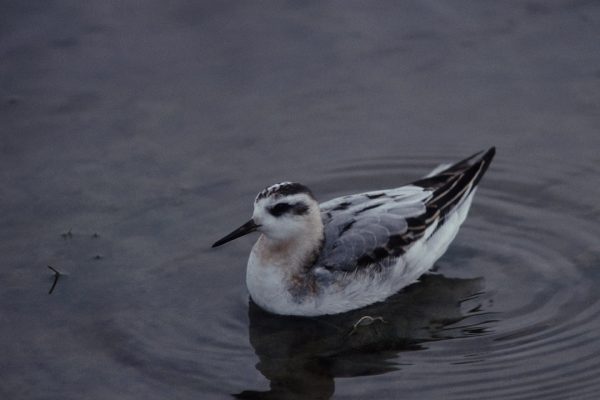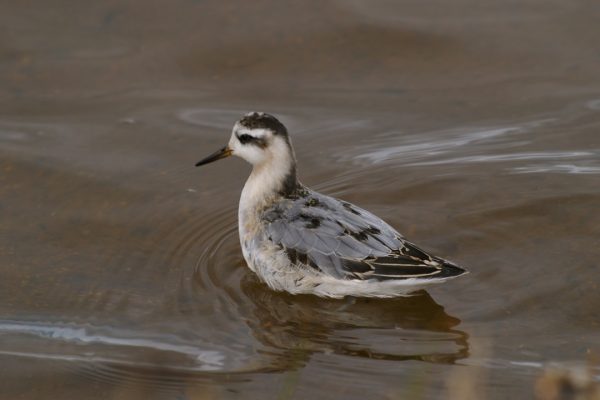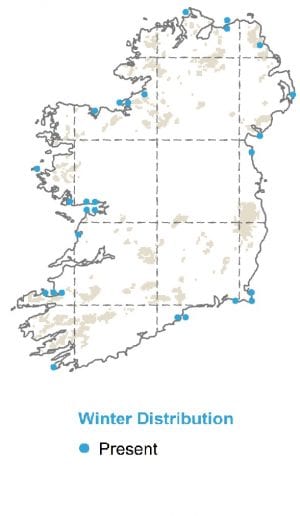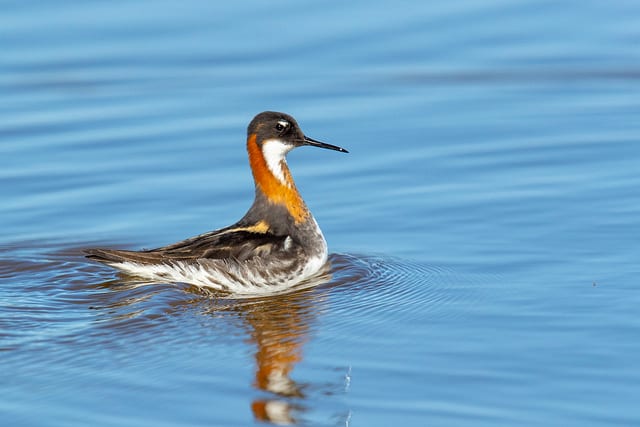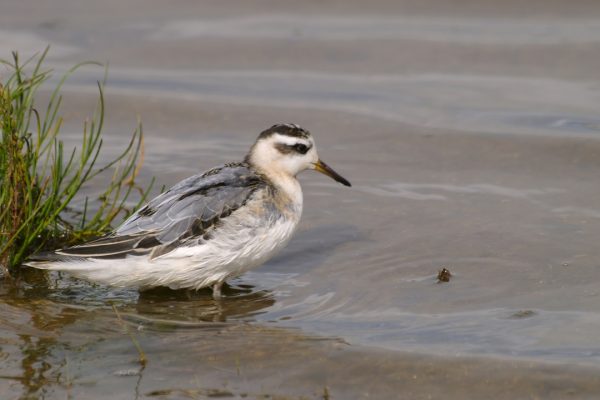
Grey Phalarope
| Irish Name: | Falaróp gobmhór |
| Scientific name: | Phalaropus fulicarius |
| Bird Family: | Waders |
green
Conservation status
Conservation status
Status
A passage migrant in variable numbers off the west coast from August to November.
Identification
The same size as Dunlin. Adult summer Grey Phalaropes are very distinctive, having brick red underparts and dark upperparts. There is a large white patch surrounding the eye, with the rest of the head black. Females are more brightly coloured than males, reflecting the reversed sex roles. There are currently no records of birds in this plumage in Ireland. Adult winter Grey Phalaropes are very plain in appearance in comparison to summer-plumaged individuals. The back is light grey, with the rest of the underparts white with a faint greyish wash. Has a prominent black stripe through the eye. In flight, has prominent white wingbars and dark rump and tail. Juveniles are similar to adult winter birds, but have a large amount of black on the wing.
Voice
Usually silent when seen in Ireland.
Diet
Feeds on a wide variety of macro-invertebrates and crustaceans, as well as plankton on the open ocean. Has a curious habit of spinning around while feeding.
Breeding
Does not breed in Ireland. Grey Phalaropes breed on bogs and marshes in the high Arctic of Siberia and Canada. A few pairs also breed in Iceland.
Wintering
This species winters far out on the Atlantic Ocean feeding on plankton. The majority of sightings are of small groups moving south off the west coast in autumn. Occasionally recorded in winter, but very rare in spring and summer.

